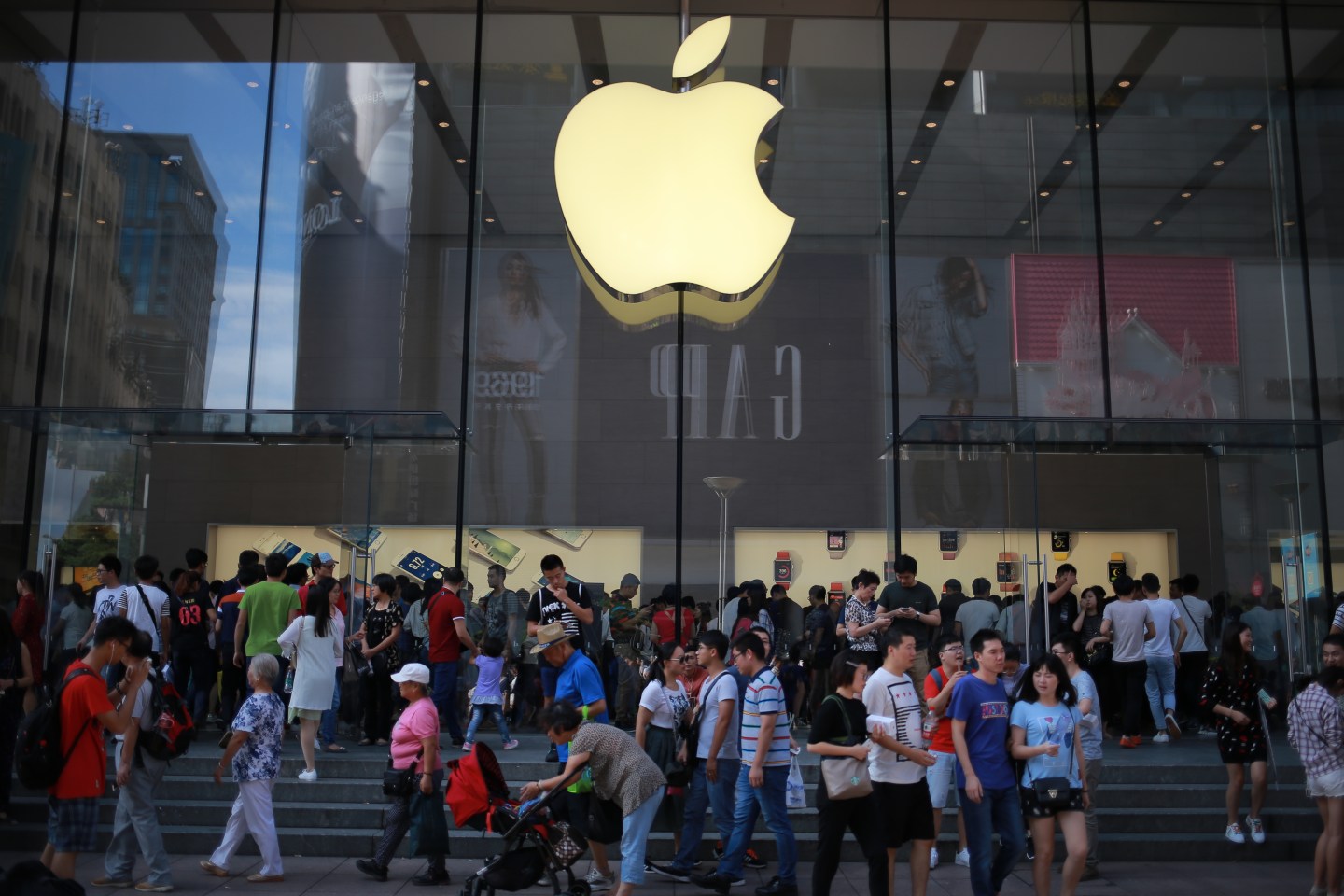U.S. Treasury Secretary Steven Mnuchin and Commerce Secretary Wilbur Ross said they will be looking for specific, “concrete” agreements from Beijing to increase U.S. access to China‘s growing consumer markets in bilateral economic talks on Wednesday.
At a business lunch on Tuesday, Mnuchin said he hoped China would lift foreign ownership restrictions in its financial services sector to allow more U.S. participation and remove barriers to trade in its information and communication technology sector.
“My hope is that we can increase our focus on concrete and targeted commitments to address both short-term and long-term strategic challenges,” Mnuchin said at the luncheon of mainly business executives with China ties.
Ross said some initial deals announced in April, as part of a 100-day economic plan aimed at reducing the U.S. trade deficit with China, were a “good start.” These include the sale of U.S. beef in China for the first time in 14 years and commitments to open up narrow areas of China‘s financial services sector, such as credit card services and credit ratings agencies.
Some of these agreements are yet to be implemented, and there has been little evidence of progress on thornier issues, such as excess capacity in China‘s steel and aluminum sectors.
A looming Trump administration decision on whether to impose broad steel tariffs based on national security concerns is casting a cloud of uncertainty over the talks, which have been rebranded this year as the “U.S.-China Comprehensive Economic Dialogue”
Ross acknowledged that the dialog has become more challenging as U.S. and Chinese officials grapple with more sensitive issues.
“Our objective, however, will continue to be specific deliverables by specific dates so that everyone on both sides can measure the results on a continuing basis,” he said.
China trade experts said they expect new announcements on small openings of China‘s marketsor specific purchases of U.S. goods, but these will not substantially alter the bilateral economic relationship.
It would be more beneficial for U.S. interests if China would agree to end subsidies for state-owned enterprises and stop the theft of intellectual property, said Derek Scissors, a China trade expert at the conservative American Enterprise Institute in Washington.
But such larger reforms are unlikely to come before China‘s 19th Party Congress this autumn, where senior officials will want to preserve economic stability, Scissors added.
The annual bilateral talks, launched in 2006 and expanded by former President Barack Obama to include strategic and security issues, have been pared back under Trump to focus on trade and economic issues.
Chinese demands
China has concerns of its own to be addressed in the bilateral talks, Chinese Vice-Premier Wang Yang told the U.S.-China Business Council lunch, including “outdated” U.S. export controls for high-technology products.
According to a translated text of his remarks, Wang said allowing such sales to China would help reduce the U.S. trade deficit, noting that China imported $227 billion worth of integrated circuits last year, but only 4% of that came from the United States.
For more on China, watch Fortune’s video:
He said that the United States and China had no choice but to cooperate economically even if they wanted to buy and hire locally.
“It is important that both sides come to realize with cool heads that given the depth of our business cooperation, neither Chinese nor Americans can do without goods from the other country,” Wang said.






